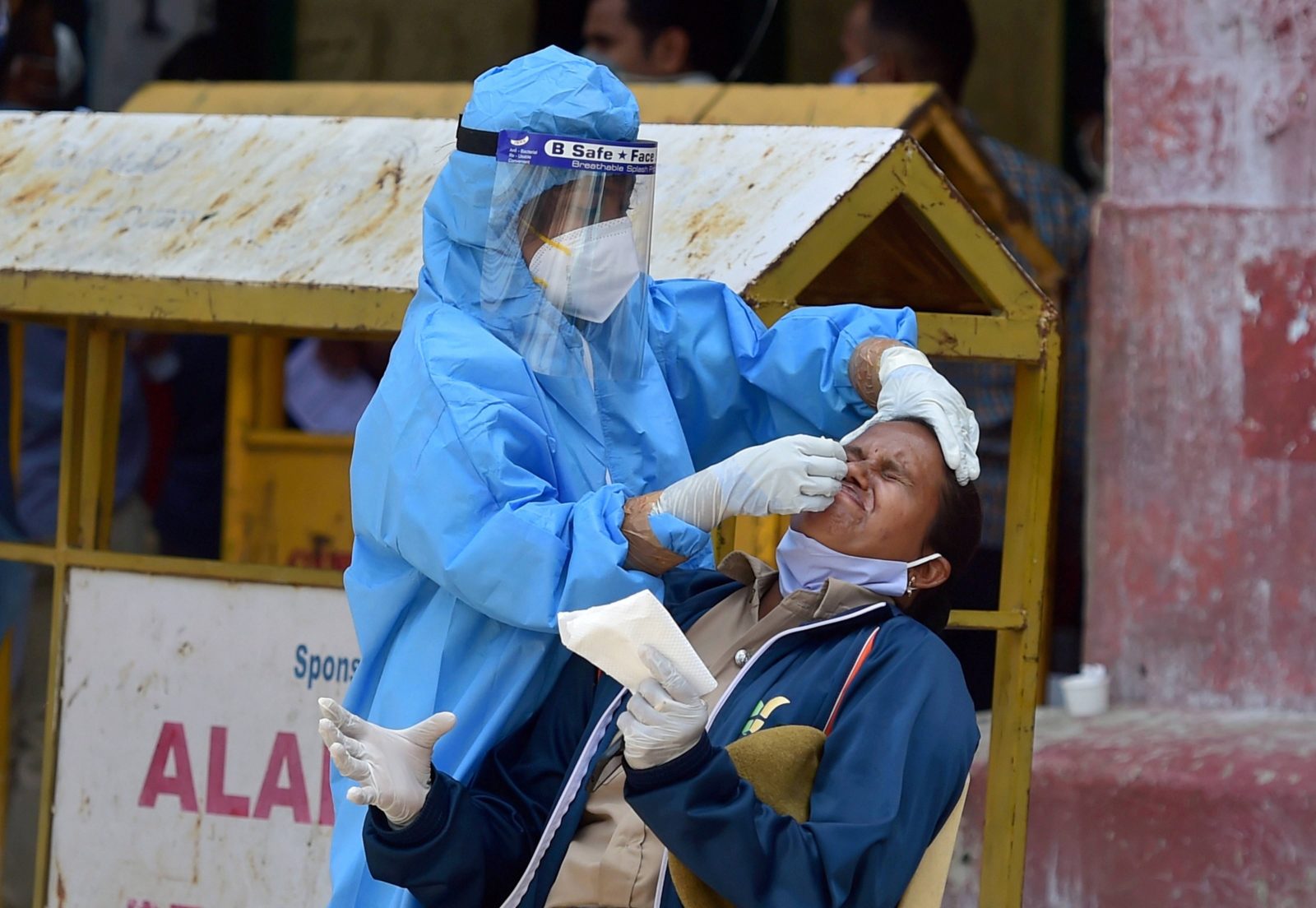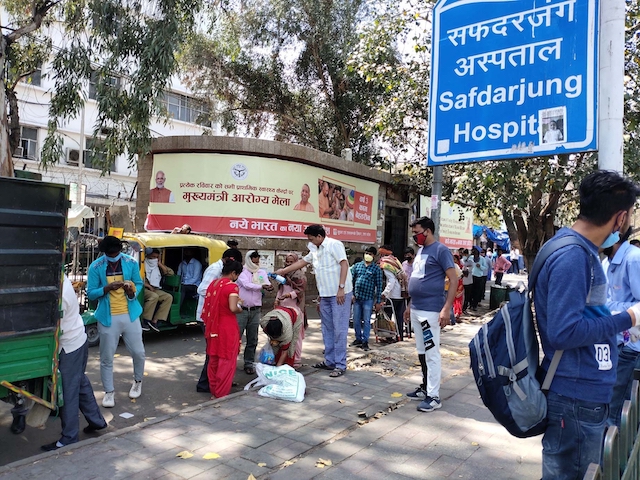Covid-19 mismanagement and challenges
Exponential rise of Covid-19 cases, existence of widespread community transmission, stressed health services, increased costs involved in treatment by the private sector despite the pandemic situation expose vulnerability of India’s healthcare system to any major health emergency, casting a doubt on policy making regarding health care services and delivery…..
By Dr Vinay Aggarwal

India is second largest populated country and third largest in number of active corona cases. Health is a broad concept, and to achieve health we need to orient all our development policies, towards people, an overwhelming proportion of whom are deprived of even the most basic necessities of life.
Keeping in mind the effective functioning of the healthcare system and efficient utilization of resources, the need for a three tier organization of health services at the primary, secondary and tertiary levels has been recognized world over. These levels are demarcated to provide appropriate level of preventive and curative technologies, institutions and personnel required at the respective levels. These levels are linked with each other through a referral system such that problems which can be taken care of at the primary or the secondary levels need not end up higher levels of care causing waste of resources and time.

As a result of low levels of development of our villages and smaller towns health personnel are not inclined to work in the peripheral areas. The net result of all this is that we have a health services system oriented towards providing urban centric curative care services, at an increasing cost of out of pocket expenditure. In its midst, there is a growing divergence between the public and private healthcare services with the public services being reduced to poor services for poor people.
The governments also expressed their helplessness in reviving this three-tier system whereas bureaucrats only see health as a medical subject and thinks that distributing pills is healthcare. But policy makers miss an important role of preventive health which prevent people from getting ill rather than milking money out of their illnesses.
There are clearly visible gaps between the ground realities and the policies framed to address them. For example, more than four thousand of changes have been made in policy matters in last six months of pandemic. We have seen far too many changes in policies regarding testing, isolation, quarantine, admission, discharges, beds status, management of Covid vs non-Covid health problems, human resources etc. More than thousand doctors are infected and around hundred lost their lives to covid besides the rising number of concerns raised regarding lack of Personnel protective equipment [PPEs], lack of clarity over approach and management to Covid patients, unregulated duty hours, testing and quarantine facilities for healthcare workers and so on.

While we understand that Covid-19 being a new virus, and with development of knowledge we need to change our approach along the way, but these policy decisions totally lack ground reality and changed much too frequently, sometimes even within a day or two, without consultation with health experts, creating confusion in public, frustration in healthcare workers and reduced credibility and faith in government.
But if we try to discern the root cause behind all mismanagement then of the most important factor that can be point is the knowledge, attitude and practice of health bureaucrats and lack of professionalism in the health care administration. Health administrators who are usually medical officers and are in charge of the health of the public although have medical knowledge but will be thoroughly lacking in administrative calibre. This gap is raising the needs for Indian medical services [IMS] cadre similar to IAS, IPS where medical professionals are trained in administrative roles and provided power to frame policies.
The need for IMS finds its first reference in 1959 by the Mudaliar Committee, which observed that “Personnel dealing with problems of health and welfare should have a comprehensive and wide outlook and rich experience of administration at the state level….. For this, it is necessary that an all India cadre should be brought into existence…….”
In 1973, the Kartar Singh Committee raised this issue observing that doctors with no formal training in infectious disease control, surveillance systems, data management, community health related problems, and lacking in leadership and communication skills, with no exposure to rural environments and their social dynamics, nor having been trained to manage a facility or draw up budget estimates, were ill equipped and misfits to work in public facilities.
This is a gross misconception that doctors can’t be good administrators whereas if you can see the growth and leadership in private healthcare which is totally managed and driven by doctors you can imagine the level of capability in their administrative skills whereas the public sector is sinking and unable to provide quality healthcare. IMS provides an opportunity to medical professionals to become a part of policy making and take active leadership roles in administration which will stabilize our healthcare system which looks very skewed at present. For any developed nation health is the indicator of its development and to make our society healthy, IMS will be proven cornerstone for nation building.
(The author is Past National President, Indian Medical Association)

